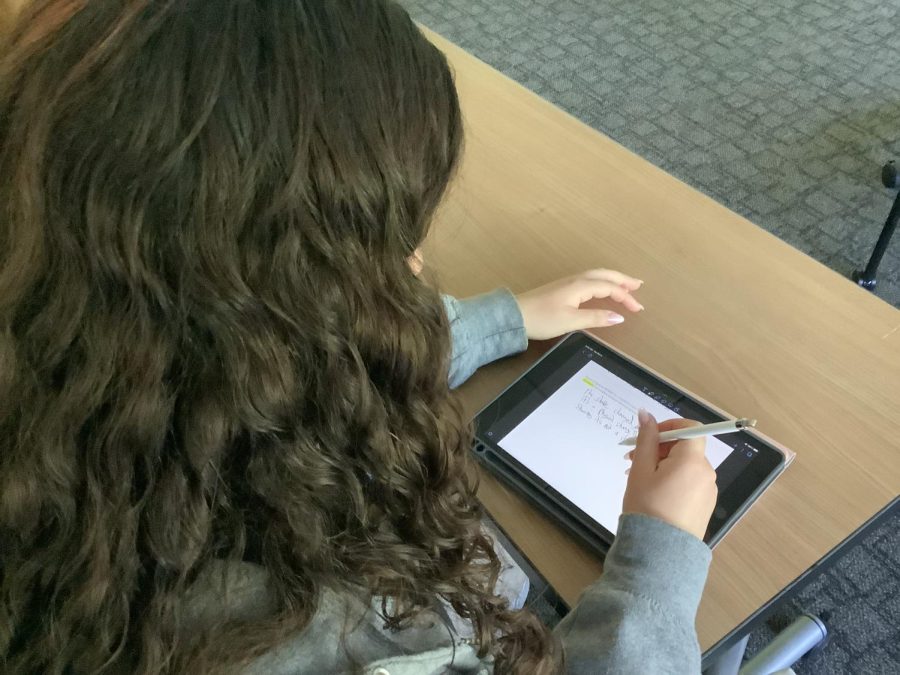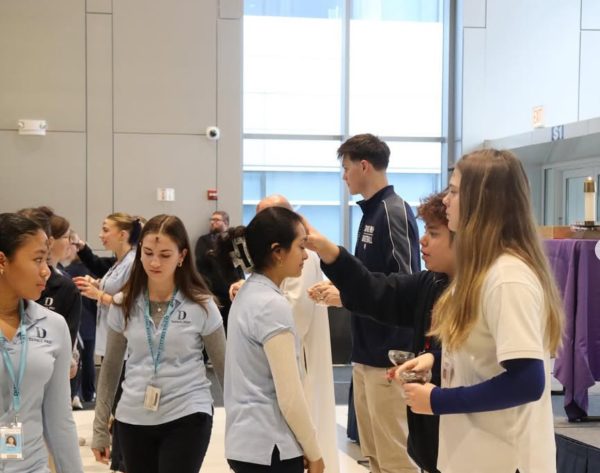Rollout of Jamf, iPad monitoring program, delayed by setbacks
Some students are concerned about monitoring, but Jamf has not worked consistently.
Jamf was installed on freshman and sophomore iPads at the start of this school year.
In early August, DePaul Prep’s incoming sophomores and freshmen arrived early to campus to install a program on their iPads. Jamf, a new program this year, was meant to help teachers control the apps students use during class. This new technology raised a lot of questions for students, as they signed out of iCloud, backed up their storage, and handed in their iPads to the school technology team for installation. Prior to Jamf, DePaul Prep used Apple Classroom, a classroom management app that monitored what students were viewing on their iPads, to keep them on task during school. Due to changes in user agreements, teachers were no longer able to utilize Apple Classroom last year, which saw immediate effects. “We saw an uptick in detentions that resulted in improper iPad use,” Assistant Principal Voss, former dean, said.
As sophomores and freshmen did not experience Apple Classroom beforehand, the new technology caused confusion. “I felt confused and upset because I felt like it was an invasion of privacy. [Still] Most of the teachers have been really good so far about not using that kind of power,” stated sophomore Sheila Bourke.
Jamf was planned for use during 2022-2023 at the end of last year, and initiated over the summer. Ms. Eaton, a member of the school’s technology team who researched and installed Jamf explained how Jamf works. “Jamf is MDM, or mobile device management. That means that when devices are enrolled into jamf school we can put apps on those devices and we can, only on school properties — restrict access to certain apps.” Furthermore, Jamf works through the IP address of DePaul’s Wi-Fi. In other words, if a student isn’t on the Wi-Fi, Jamf cannot be used.
Jamf can’t monitor what students are doing on their iPads. Instead, it restricts access to certain apps, such as games, during school hours. So far, Jamf has restricted little, as it is still going through a pilot phase, which Voss elaborated on. “They are still experiencing some backend issues with Jamf. From my knowledge I don’t know if it is being fully implemented, as it was intended to, as they continue to work out some of the backend issues.”
Therefore, little data on the effectiveness of Jamf has been gathered, other than the fact that it has had some success with teachers who used it during summer classes. As of now, only freshmen and sophomores have this software downloaded on their devices. These two classes are crucial in this pilot phase, according to Voss. “Based on the data they we saw, freshmen and sophomores were the ones that had the hardest time staying focused during classes and we saw the most detentions coming out of the freshmen and sophomores. We said ‘they’re still developing and working on their executive functioning skills.’ So, we figured let’s target them and see how that goes.”
Still, sophomores and freshmen have their own opinion. “What point is that serving? I feel like have it on everyone’s or have it on no one’s,” said freshman Amanda Westphal.
In theory, if Jamf is effective this year, the school would like to expand it to the entire school to include juniors and seniors. But, based on the current success of this experiment, it is uncertain whether it will even become active, and its effect on student behavior remains unknown.






